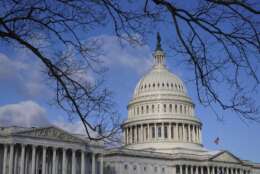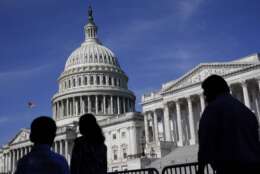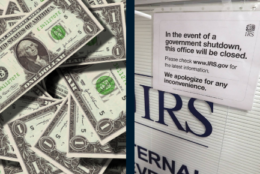john hatton
-
OPM will try to “establish sustainable premium rates” during upcoming two-year suspension on new applications to the Federal Long-Term Care Insurance Program.
November 25, 2022 -
Part of the lengthy to-do list for legislators by the end of the year, several bills and amendments may have significant impacts for the federal workforce.
November 23, 2022 -
Before health premium rates increase by an average of 8.7% in 2023, some health care experts tell FEHB enrollees to double-check their plans during open season, which runs Nov. 14 through Dec. 12.
October 04, 2022 -
Congress has a lot on its plate to try to avoid a continuing resolution, including a host of appropriations bills.
August 18, 2022 -
When Congress created the Federal Employee Retirement System in the ‘80s, one of the most notable changes was that future retirees would get smaller cost of living adjustments than participants in the old Civil Service Retirement System. CSRS and Social Security beneficiaries get COLAs that match inflation; FERS retirees get a smaller adjustment. That hasn’t been a big deal over the past decade of low inflation, but obviously circumstances have changed.
June 10, 2022 -
The Postal Service Reform Act, at least as it's currently written, proposes significant structural changes to the Federal Employees Health Benefits Program. An employee advocacy group worries the bill could raise premiums for federal employees and retirees.
May 25, 2021 -
The National Academy of Public Administration detailed a solid path forward for the Office of Personnel Management, former agency executives and advocates say, but they're not convinced anyone has the political clout, influence and willpower to see it through.
April 01, 2021 -
Experts from the National Active and Retired Federal Employees Association said the election season will overshadow much of what should happen on Capitol Hill.
March 04, 2020 -
The Democratic presidential primaries are great drama this year and the coronavirus scare is super important. That said, until a lot more is known, life goes on.
March 04, 2020 -
Folks under the old Civil Service Retirement System, like people who get Social Security benefits, are protected from inflation. But most people on the federal pay roll are under FERS.
February 21, 2019 -
We’ll know soon enough about the latest shutdown, but the pay raise is a little more complicated. H.R. 790 passed the House easily but has remained stagnant in the Senate since Jan. 31.
February 14, 2019 -
The CSRS and FERS programs are considered the jewel in the crown of federal civil service benefits but the Trump administration wants to cut costs in the giant federal retirement program by totally eliminating future COLAs for FERS retirees. NARFE's Jessica Klement and John Hatton join host Mike Causey on this week's Your Turn to discuss what the organization is doing to protect all federal benefits, including the retirement plan. September 18, 2018
September 19, 2018 -
The Trump administration wants to cut costs in the giant federal retirement program by totally eliminating future COLAs for FERS retirees. If it becomes law the 2019 COLA would be the last.
September 19, 2018 -
The Trump administration has submitted a legislative package that would, among other things, eliminate cost of living adjustments for current and future retirees. Will Congress pass it? Find out when NARFE Deputy Director for Advocacy John Hatton joins host Mike Causey on this week's Your Turn to discuss the president's proposals. June 6, 2018
June 06, 2018 -
Federal retirees in 1980 could establish a standard of living and keep it even during 14 percent inflation and 11-plus percent the following year. Now, the Trump administration has submitted a legislative package that would, among other things, eliminate cost of living adjustments for current and future workers retiring under the Federal Employees Retirement System.
June 06, 2018















